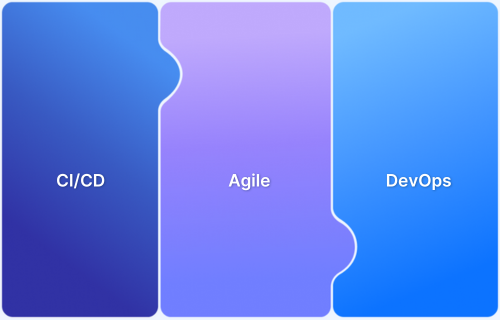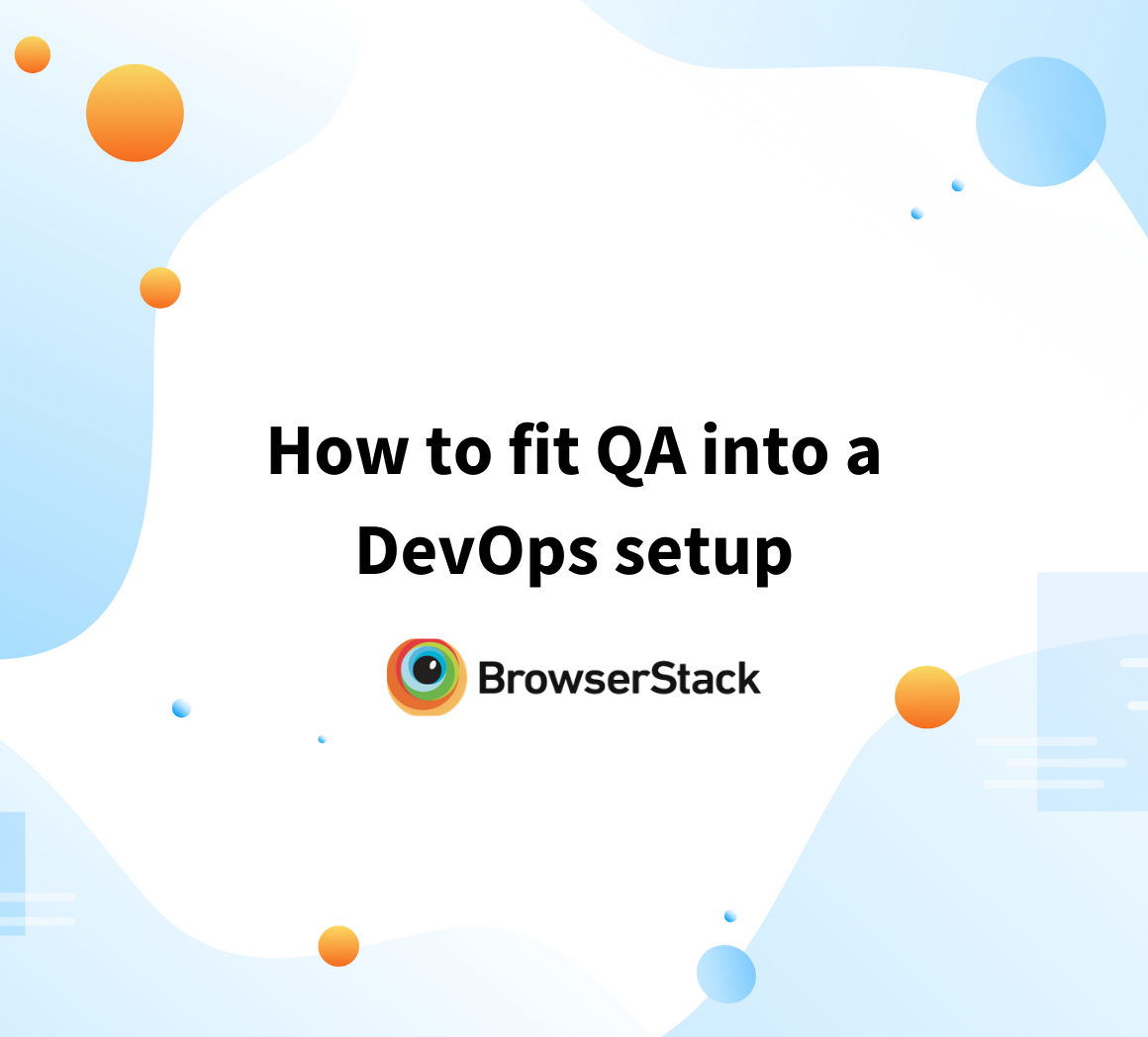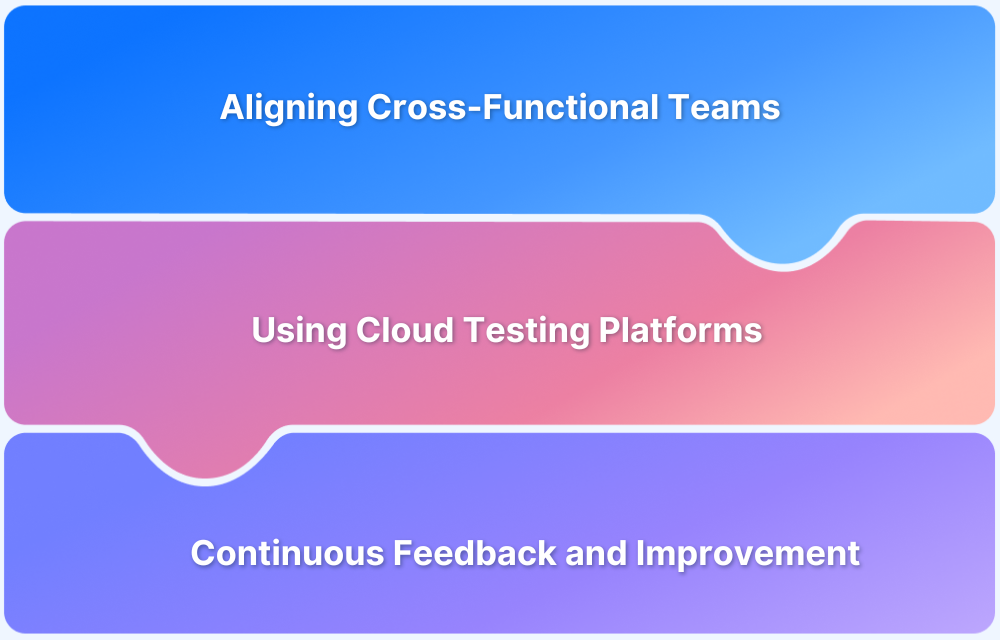In 2021, 83% of IT decision-makers reported implementing DevOps practices to unlock higher business value. Moreover, the DevOps market is expected to expand from $2.9 billion to $8 billion by 2022.
As DevOps becomes a fixture in software development, it is bringing about another phenomenon that promises to be just as much a default as DevOps currently is: cloud-based solutions. Using tools, frameworks, and infrastructure hosted on the cloud is almost synonymous with effective DevOps implementation – and for a good reason.
This article will go into those reasons, explore the many advantages of using cloud computing in a DevOps context, and highlight how testing, in particular, can be simpler, faster, and more value-driven on the cloud.
Cloud-based DevOps – What does it mean?
At its heart, DevOps enables software development teams to reduce the time and effort required to build, test and deploy quality software. It accomplishes this by creating collaboration between development and operation teams, minimizing conflict (“works on my machine”), and cutting down on the back and forth that occurs when teams are not on the same page at all times.
To leverage the best of DevOps, teams must use various tools and practices to facilitate better communication, transparency, and lower instances of human error. This is best achieved through extensive automation – one of the key principles of establishing DevOps. Automation allows you to get more work done without burning people out.
Effective automation requires the right tools, not just for the SDLC but also for ancillary purposes like reporting bugs, documenting requirements, quick communication between teams, etc. These tools must keep up with the breakneck pace of technological innovation and changes in user expectations, especially that of frequent software releases and updates.
Turns out, this is where cloud computing is most effective. Cloud-based DevOps essentially refers to the practice of using tools and solutions hosted on a cloud instead of being on-premise. Even though they operate on the cloud, the tools are secure from unauthorized access and are able to fit into DevOps pipelines with minimal hassle. By choosing and using cloud-based solutions built to align with DevOps-first workflows, teams can get the most out of this radical principle that gets results.
Also Read: What is Cloud Testing
Advantages of Cloud-based Solutions for DevOps teams
There are many reasons for DevOps teams to adopt cloud-hosted solutions, but the following are universal ones that stand out:
- Ease of adoption: Any tool is easier to adopt if it’s hosted on the cloud. You purchase a plan, access the cloud platform, and configure and set up the tool with vendor support, if necessary. Imagine the time and effort it would take if you wanted to set up a tool that performs the same on-premise activities. At the very least, you’d have to purchase server space to host said tool. You’d also need dedicated personnel to ensure that the hardware and software configurations are necessary for it to stay consistently functional. Then, there’s the requirement for expert support in case of any malfunction, downtime, or inexplicable anomaly in the tool’s functioning. By the time you’ve set up a tool well enough to cater to the demands of a modern SDLC, you’ve lost precious time actually developing your product.
- Centralization: DevOps principles apply across the development pipeline – coding, builds, testing, deployment, and post-production monitoring – all of which require one or more different tools to accomplish. When hosted on the cloud, these tools exist in a centralized architecture that can be. quickly and easily accessed by all relevant teams from anywhere at any time. Once again, this cuts down on time, effort, and friction that would exist if teams had to jump through hoops to access the tools they need.
- Scalability: Let’s say that at the beginning of your DevOps project, you had to test your software on 10 iPhone versions. Then the iPhone 14 came along, everyone loved it, and you realized that your apps and sites must run flawlessly on it to meet customer preferences. With an on-premise device lab, you’d have to get budgetary approval for the new device, purchase it, and set it up for manual and automated testing. If you chose a cloud-based testing solution like BrowserStack, you wouldn’t be doing any of that since BrowserStack proactively added iPhone 14 to its real device cloud. You’d just get a notification of this addition and expand your device coverage to include the iPhone 14. No extra effort or cost is involved.
- Apply this logic to all tools in your DevOps architecture, and it becomes evident that cloud-based solutions allow for quicker, easier, and more efficient scaling as compared to in-house options.
- Lower cost of ownership: As explained in the first point, it is much cheaper and more effort-effective to purchase cloud-based tools instead of setting them up in-house. The cost required to set up server space, purchase requisite devices and hardware, configure relevant software, and provide access mechanisms across different teams is bound to be immense – and almost always unfeasible for small teams and businesses. You only pay for what you need when you need it. With cloud-based tools; you can upscale and downscale as necessary. To use the example of testing once again, you can choose plans and pricing based on the number of devices you need to test on or whether you need just manual testing or both manual and automated. You simply pay or what you want for a particular project, sprint, or dev cycle – not what may be required for future projects and projected customer requirements.
- Greater stability and uptime: The cloud provider you choose will prioritize the stability and uptime of their infrastructure. The vendor will focus on maintaining, updating, and smoothing out issues while the team works to refine and streamline development, integration, testing, and monitoring. Without their attention being split, teams can innovate and build pipelines that actively produce better software, achieve faster time to market, and prioritize customer satisfaction.
- Easier collaboration & automation: At every step of the DevOps operation, cloud computing promotes better collaboration. Team members no longer have to spend time sending files back and forth between each other, and other teams. Simultaneous development by multiple individuals becomes easy without anyone stepping on other devs’ toes. Most importantly, cloud computing facilitates remote workspaces. With everything on the cloud, no one has to go to the office anymore to get work done.It is also easier to execute automated processes on the cloud. Not only is your team spared the effort of setting up server availability and installing and configuring necessary tools, they can quickly run automated tests using diverse frameworks (Selenium, Cypress, Playwright, Puppeteer) with minimal setup. By easing up on the grunt work, cloud-based automation lets humans focus on tasks that require judgment, innovation, and imagination. It also lowers the likelihood of human error, which occurs at a higher possibility when someone has to deal with tedious, repetitive tasks on a daily basis.
Real Device Testing on the Cloud
BrowserStack provides the industry-best infra for cloud-based testing on real browsers, devices, and operating systems. Given the centrality of DevOps to modern software development, our real device cloud has been built and designed to align with DevOps-driven workflows.
For example, the BrowserStack cloud offers integrations with popular CI/CD tools – Jenkins, Travis CI, TeamCity, Bamboo, Azure Pipelines, Circle CI, GitLab, and more.
Then there are integrations designed to facilitate automated testing for websites and apps – Appium, Espresso, XCUITest, EarlGrey, Playwright, Puppeteer.
At the center of our cloud sits 3000+ real browsers, devices, and operating systems. Thousands of desktop and mobile devices, installed with multiple versions of popular browsers as well as operating systems are perpetually in readiness to be tested on. Whether you’re aiming to run manual or automated tests for websites or apps, you’ll find pristine, secure devices prepped for the same. Simply feed your test scripts, and get 100% accurate results of tests executed in real user conditions.
To align with the changing requirements of customers as well as search engines, the BrowserStack is being constantly updated to offer newer features and abilities. For example, you can run speed tests to verify how fast your website loads across different browser-device-OS combinations – important since both users and Google expects sites to load within a few seconds.
Testers can also run accessibility tests, ensuring that their software is usable by individuals who might be differently abled. This is important since many countries have passed legislation that requires online assets to accommodate the needs of physically challenged users.
Moreover, since fast time to release is imperative to maintain a competitive edge in online markets, BrowserStack enables parallel testing. QA personnel can run automated tests across multiple browsers and devices simultaneously, cutting down on the time that linear tests would take.
There are multiple other features that make BrowserStack an ideal cloud-based testing solution for DevOps teams. Have a look at them below:
- Manual Website Testing Features
- Automated Website Testing Features
- Manual App Testing Features
- Automated App Testing Features
If you’re still not convinced, simply sign up on BrowserStack for free, and run a few tests. You’ll know exactly how our cloud can offer a distinct advantage when integrated into your DevOps team.






